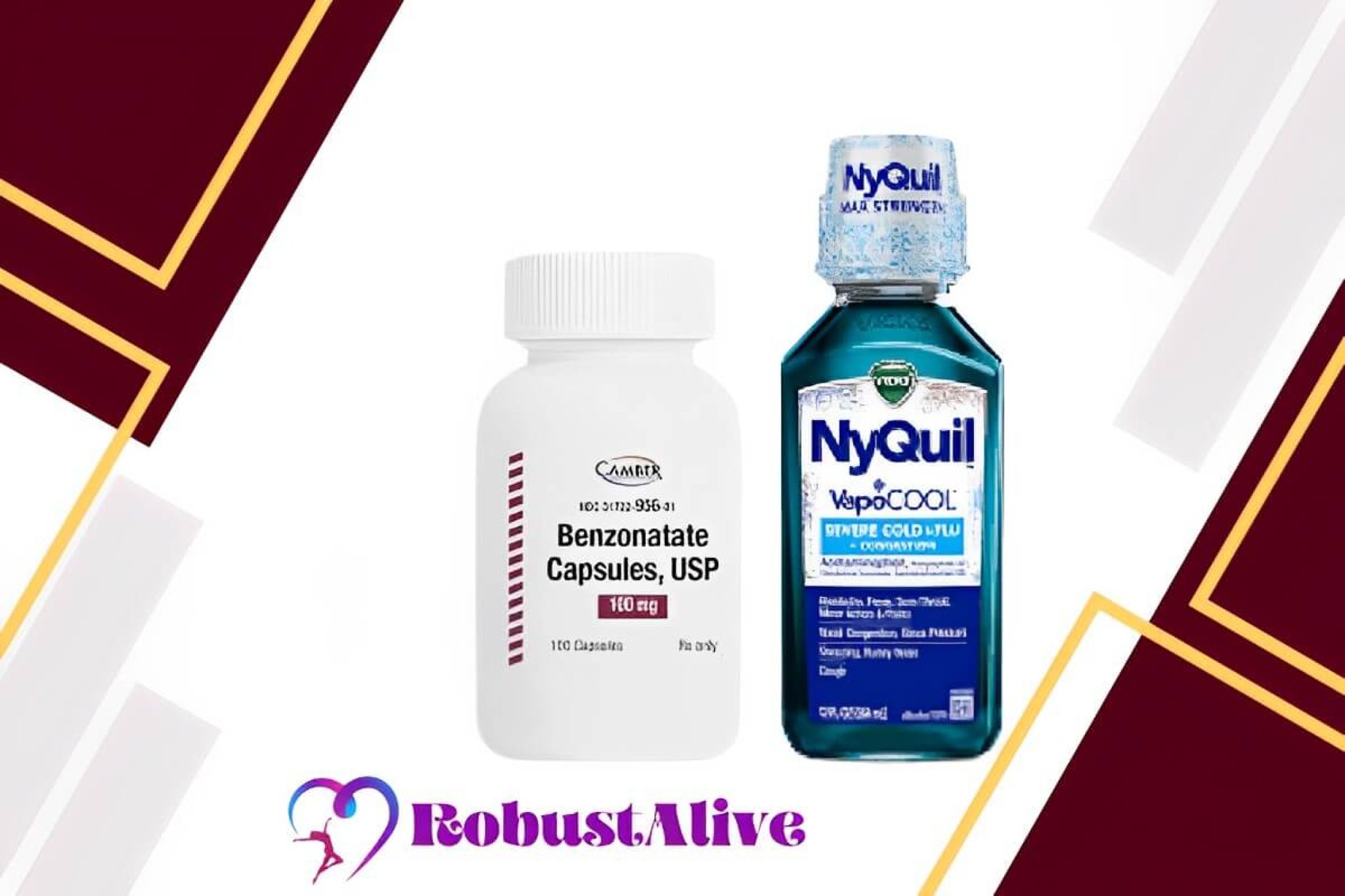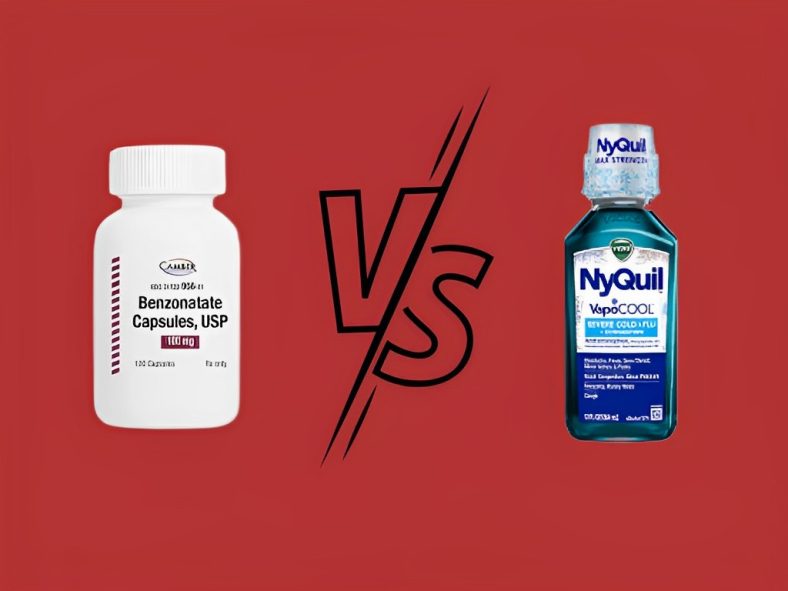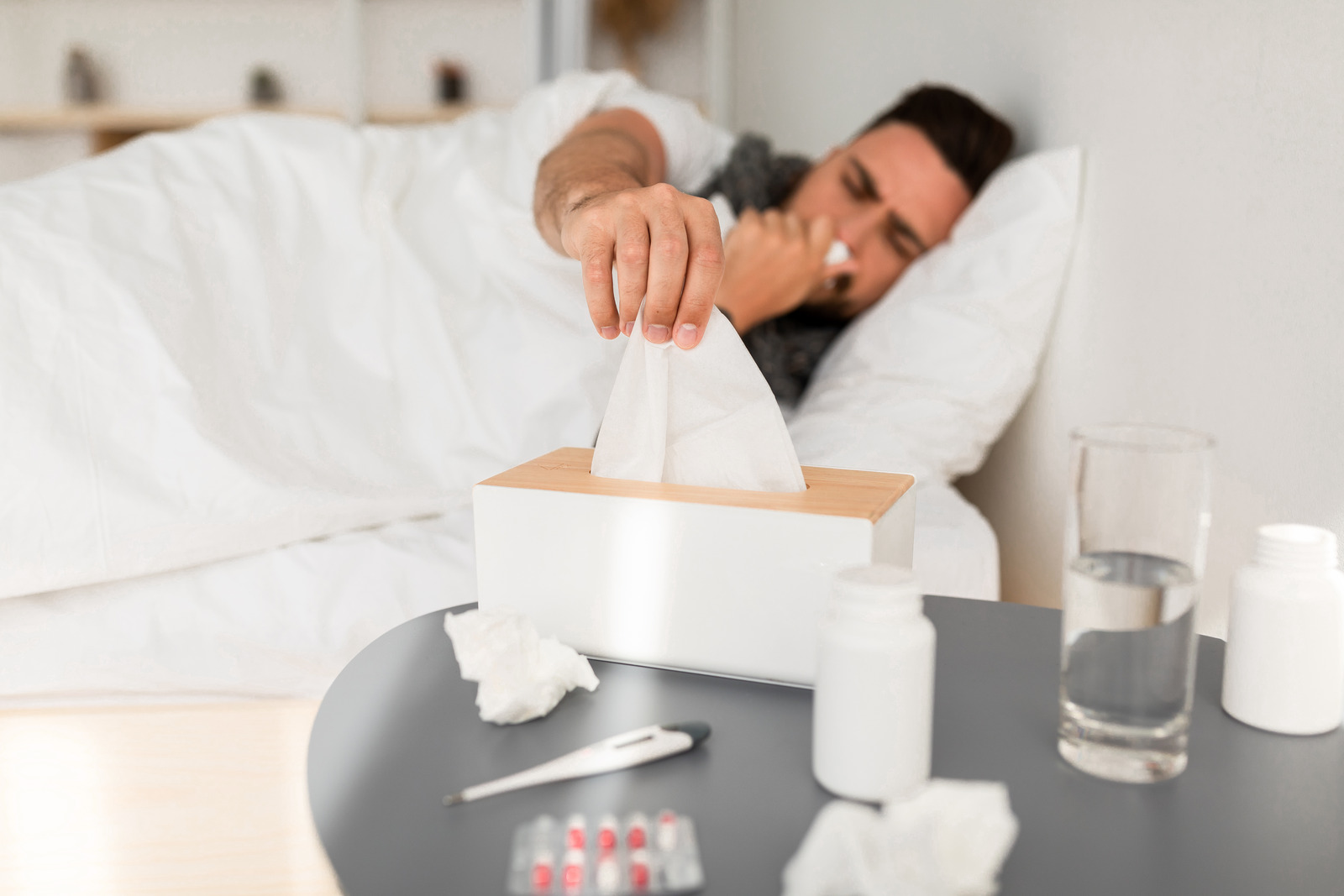Doctors Reveal: This Common Mistake with Benzonatate and Nyquil Could Be Deadly
Are you battling a cough and cold? Many reach for over-the-counter remedies like Nyquil and prescription medications like benzonatate (Tessalon Perles) to find relief. However, what seems like a simple solution could lead to serious, even life-threatening, consequences if taken incorrectly. Doctors are warning about a common mistake in combining these medications, highlighting the importance of understanding potential drug interactions. This article will delve into the risks, explain the dangers, and provide crucial information to ensure your safety.
Understanding the Players: Benzonatate and Nyquil
Before we explore the dangers, let’s familiarize ourselves with the medications involved:
Benzonatate (Tessalon Perles): This is a prescription medication used to suppress coughs. It works by numbing the stretch receptors in the lungs and airways, reducing the urge to cough. It is often prescribed for coughs that are not responding to over-the-counter treatments.
Nyquil: This is a popular over-the-counter medication that combines several active ingredients to alleviate cold and flu symptoms. The exact formulation varies slightly depending on the product (e.g., Nyquil Cold & Flu, Nyquil Severe Cold & Flu), but typically includes:
- Dextromethorphan: A cough suppressant.
- Acetaminophen: A pain reliever and fever reducer.
- Doxylamine Succinate: An antihistamine that can also promote drowsiness.
- Phenylephrine or Pseudoephedrine: A decongestant (present in some formulations).
The Deadly Combination: Why Mixing Benzonatate and Nyquil Can Be Risky
The primary concern revolves around the potential for overdosing on cough suppressants and other ingredients when combining benzonatate with Nyquil. While both medications aim to address cough symptoms, they do so through different mechanisms. However, the overlap in some ingredients, and the potential for additive effects, can lead to serious complications.
Here’s a breakdown of the risks:
Increased Risk of Respiratory Depression: Both benzonatate and dextromethorphan (a cough suppressant found in most Nyquil formulations) can suppress the cough reflex. Combining them can lead to excessive suppression, making it difficult to clear secretions from the lungs and potentially leading to:
- Difficulty breathing
- Shallow breathing
- Respiratory arrest (cessation of breathing)
Overdose of Acetaminophen: Many Nyquil products contain acetaminophen. Taking Nyquil while also taking a medication containing acetaminophen, or taking a higher than recommended dosage, can lead to liver damage, potentially resulting in:
- Liver failure
- Nausea and vomiting
- Abdominal pain
Additive Sedative Effects: Nyquil contains doxylamine succinate, an antihistamine that causes drowsiness. Benzonatate, while not inherently a sedative, can contribute to drowsiness and may amplify the effects of doxylamine. This can lead to:
- Excessive drowsiness
- Impaired judgment and coordination
- Increased risk of accidents
Potential for Other Drug Interactions: The decongestants (if present in the specific Nyquil formulation) can interact with certain medications and underlying conditions, potentially leading to:
- Increased blood pressure
- Increased heart rate
- Anxiety and nervousness
Crucial Advice: How to Stay Safe
To avoid potentially dangerous interactions, follow these crucial guidelines:
- Consult Your Doctor or Pharmacist: Before taking any new medication, always discuss it with your doctor or pharmacist, especially if you are already taking other medications, including over-the-counter drugs. They can assess potential interactions and advise on safe usage.
- Never Combine Without Medical Advice: Do NOT take benzonatate and Nyquil concurrently without explicit instruction from a healthcare professional.
- Read Labels Carefully: Always read and understand the labels of all medications, including both prescription and over-the-counter products. Pay close attention to active ingredients, dosages, and warnings.
- Separate Dosages: If your doctor deems it safe to take both medications (unlikely), follow their specific instructions regarding timing and dosage very carefully.
- Monitor for Side Effects: Be vigilant for any adverse effects, such as difficulty breathing, excessive drowsiness, confusion, or changes in heart rate. Seek immediate medical attention if you experience any of these symptoms.
Conclusion: Prioritize Safety and Seek Professional Guidance
The combination of benzonatate and Nyquil, while seemingly a logical approach to managing cough and cold symptoms, carries a significant risk of adverse effects. The potential for respiratory depression, acetaminophen overdose, and additive sedative effects makes this combination dangerous.
By understanding the risks, heeding the warnings, and prioritizing consultation with a healthcare professional, you can protect your health and avoid potentially life-threatening complications. Always err on the side of caution and seek expert advice to ensure safe and effective treatment for your cough and cold symptoms. Your health is paramount.
Frequently Asked Questions (FAQs)
Can I take Nyquil if I’ve recently taken benzonatate? No, it’s generally not recommended. You should wait until the effects of benzonatate have completely worn off and consult your doctor or pharmacist before taking Nyquil. They can advise on a safe timeframe.
What should I do if I accidentally took benzonatate and Nyquil together? Seek immediate medical attention. Contact your doctor, go to the emergency room, or call emergency services (911 in the US) immediately. Provide information about the medications and dosages taken.
Are there any safe alternatives to Nyquil if I’m taking benzonatate? Your doctor or pharmacist can recommend alternative cold and flu remedies that are safe to take with benzonatate, or suggest non-medication methods for relief. They can help you choose a product that doesn’t contain ingredients that could interact negatively.
What are the symptoms of an overdose of benzonatate or Nyquil? Symptoms can vary, but may include difficulty breathing, shallow breathing, extreme drowsiness, confusion, dizziness, nausea, vomiting, and changes in heart rate. If you experience any of these symptoms, seek immediate medical attention.
Can I take other cough suppressants with Nyquil? It depends on the specific medications. Always consult your doctor or pharmacist before combining any cough suppressants, as they can have additive effects.




